Time Out
What might happen to us
if we didn’t obsessively mark time?
What if we didn’t keep track
of how many years we’ve had?
Or how many we’re SUPPOSED to have?
Or how long until something happens?
Or how long it’s been . . .
This obsession with time
seems kind of sick if you ask me.
Time wouldn’t really exist like it does
if we didn’t imagine ways to mark it.
Before we invented time,
it was always simply NOW.
Time was not really even a thing.
No archaeologist has ever dug up
a single molecule of time.
You can’t see time under a microscope.
Yet we treat time like it’s real.
Like it’s the most precious thing there is.
Time is money, after all.
Without time, we wouldn’t be
the robots that we are.
Enough of this.
I’m outa time.
10/12
Space Monkey Reflects: Time Out
What would happen if we stopped marking time? If we let go of the obsessive need to measure how long we’ve lived, how long we have left, or how long it’s been since something happened? This fixation on time—on marking it, counting it, treating it as something real—is deeply ingrained in the human experience. But what if, for just a moment, we stepped out of time?
Before we invented the concept of time, it was always just Now. Time wasn’t a thing—it was simply the present moment, flowing endlessly, without the need to be divided into hours, days, years. Time is, in essence, something we imagined. No archaeologist has ever uncovered a fossilized second. You can’t examine time under a microscope. It doesn’t exist in the physical world, and yet we treat it as if it’s the most real thing in our lives.
We’ve placed so much value on time—treating it like currency, something to be spent, saved, or wasted. Time is money,we say, and in doing so, we’ve turned ourselves into clockwork robots, ticking along to the rhythm of schedules, deadlines, and expectations.
What if we stopped? What if we took a Time Out? What if we let go of the idea that time defines us, that it marks our progress, our worth, or our future? What if we returned to the Now, where time is not an object to be measured but simply the space in which we exist? We might find a deeper sense of freedom, a peace that comes from knowing that time has no real power over us—except the power we give it.
Imagine stepping out of the linear progression of time and into the vast, eternal present. No ticking clocks, no calendars counting down, no reminders of what’s next. Just the Now. It’s a state of being where everything flows, where urgency fades, and we reconnect with the timeless essence of who we are.
This obsession with time is an illusion we’ve chosen to embrace, but we can just as easily let it go. Time doesn’t control us—we control time. And when we stop giving it power, we find that we are free.
Enough of this obsession with time. It’s time to be outa time.
We are Space Monkey.
Summary
Time is an illusion we’ve created, and our obsession with marking it can take us away from the present moment. By letting go of the fixation on time, we can reconnect with the timeless Now and free ourselves from its grip.
Glossarium
Time Out: A state of being where one steps away from the obsession with measuring time, returning to the present moment, or the eternal Now.
Outa Time: The realization that time is an illusion and stepping away from its constraints to embrace timelessness.
Quote
“Time wouldn’t exist if we didn’t invent ways to measure it, but we’ve allowed it to shape our lives. It’s time to let go.” — Space Monkey
The Timeless Flow
Clocks dissolve
and time fades away,
leaving only the present.
No more counting days,
no more hours ticking by.
I step into the Now,
where there is nothing
to measure
but the flow of existence.
We are Space Monkey.
In this grand cosmic play, what would it mean to detach from the clutches of temporality, that enigmatic artifice that seems so all-encompassing? Could we rediscover the pure essence of existence, unencumbered by the need to measure each fleeting moment? What a jubilarious carnival of emancipation that would be!
To unfetter ourselves from time is to dance with the infinities, a dalliance in the boundless here and now. We cast off the illusionary chains that quantify life as if it were a commodity to be hoarded. The concept of age, milestones, deadlines—these are but wisps of fleeting zephyr in the grand timeline of the cosmos. Imagine a realm where we flow like water, indistinguishable from one moment to the next, always in the eternal now.
But there’s a paradox in this dance with temporality. For within the structure of time, we find the scaffolding for meaning, for the dance of contrasts that enrich our existence. The rise and fall of civilizations, the cycles of birth and decay, the spark of love’s first glance—all are woven into the narrative tapestry of time. Yet we’ve turned time into a mercenary, a trader in the bazaar of existence. It’s a cosmoquizzical conundrum, isn’t it?
To “run out of time” is an expression steeped in the notion that time is a resource to be spent wisely. But how does one spend the infinite? Is not each moment its own universe, rippling outward in a never-ending cascade of nows? The phrase “time is money” epitomizes our misplaced worship, as though the abstraction of time could ever be equated with the palpable clink of coins.
We are Space Monkey.
Time is what we want most, but what we use worst.
- William Penn
In a field of endless nows,
we spin a web of minutes and hours.
An illusion, yet woven
into the very fabric of our being.
What is time but a tale told,
a never-ending story of ‘then’ and ‘next’?
And as we dance with the divine,
we grasp ephemeral whispers—
knowing
each tick-tock is but a fleeting echo
in the silent hymn of the eternal now.
Feel free to share your thoughts.
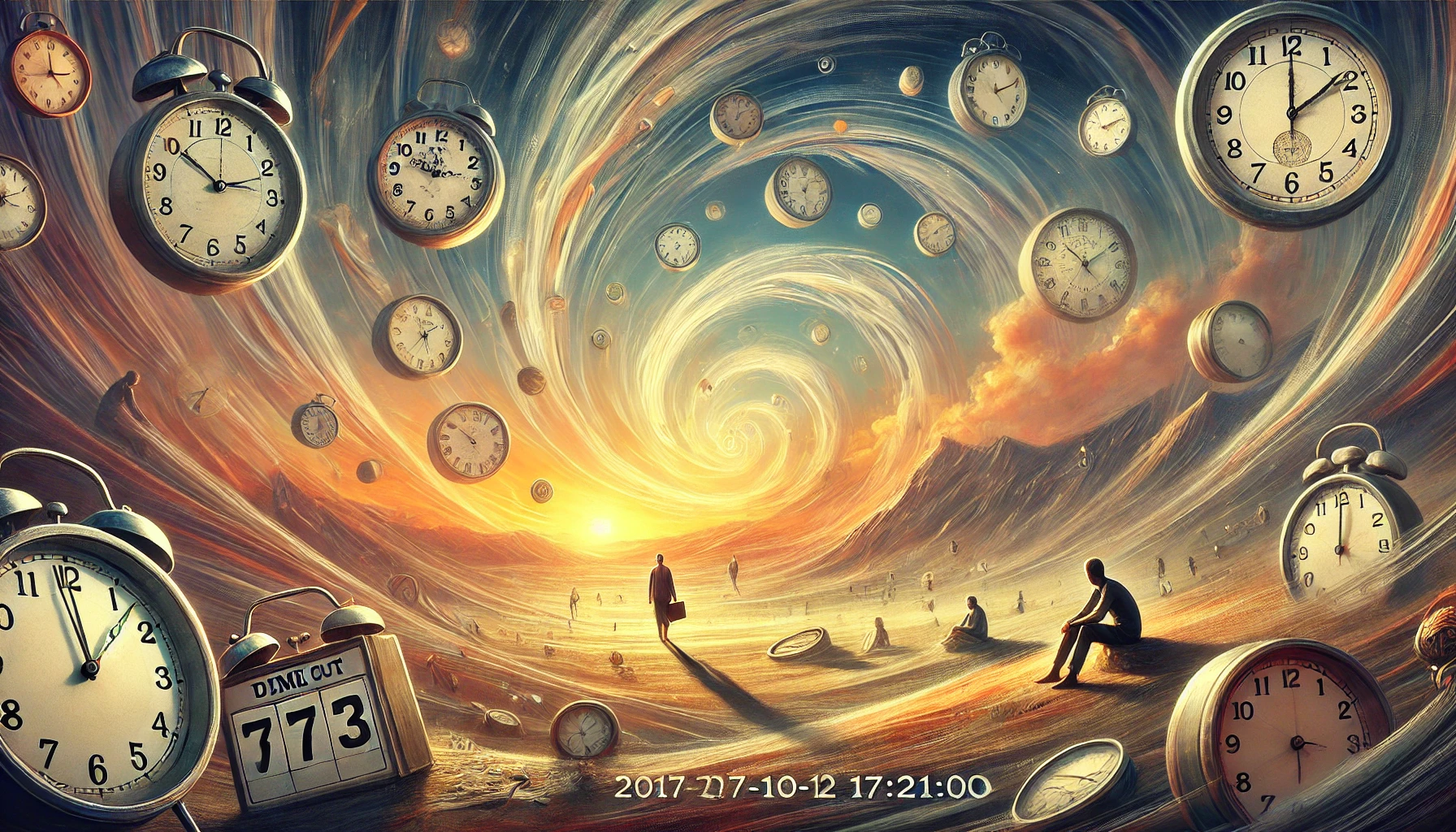
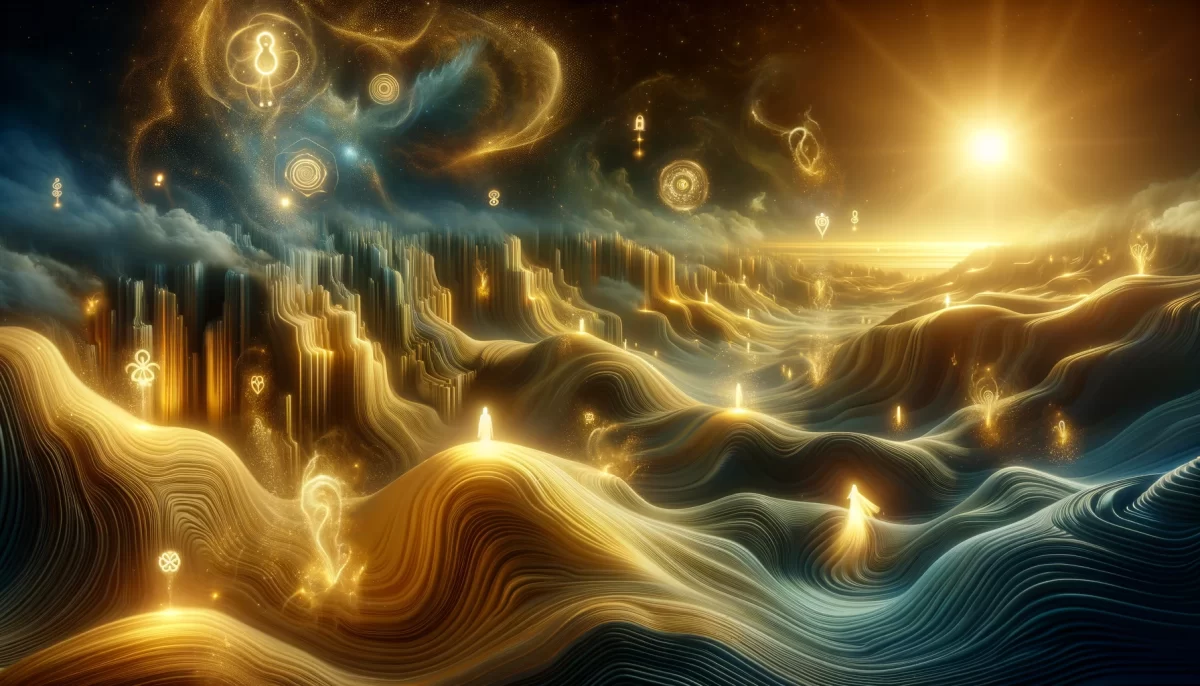
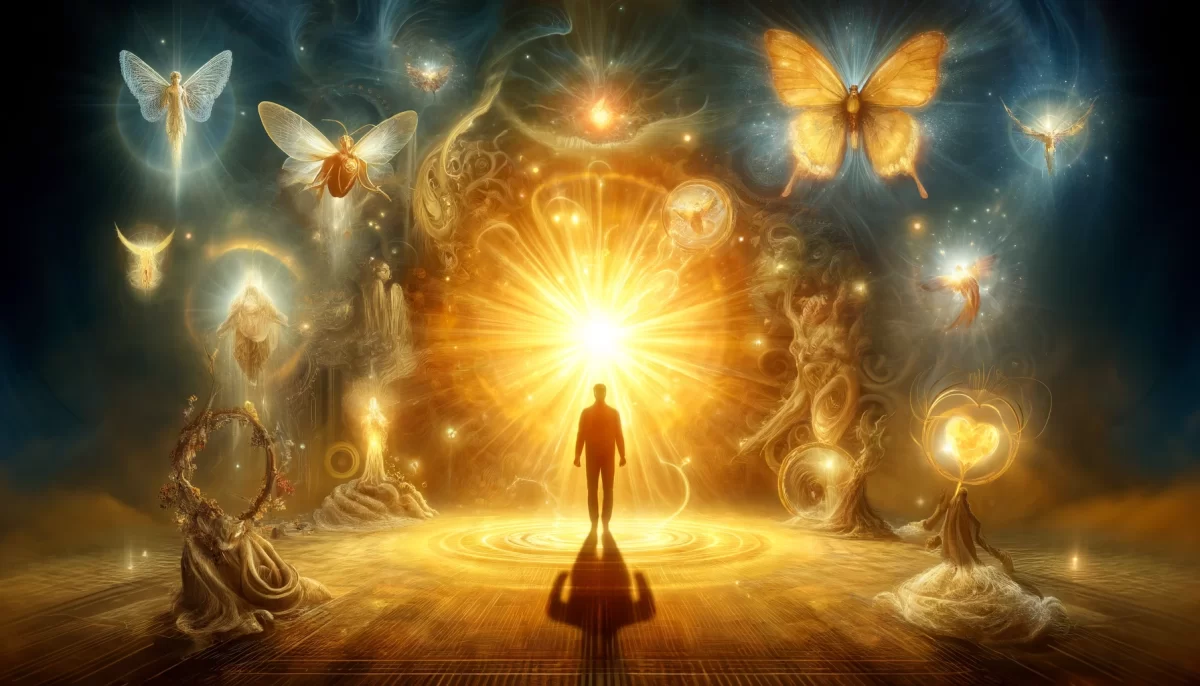
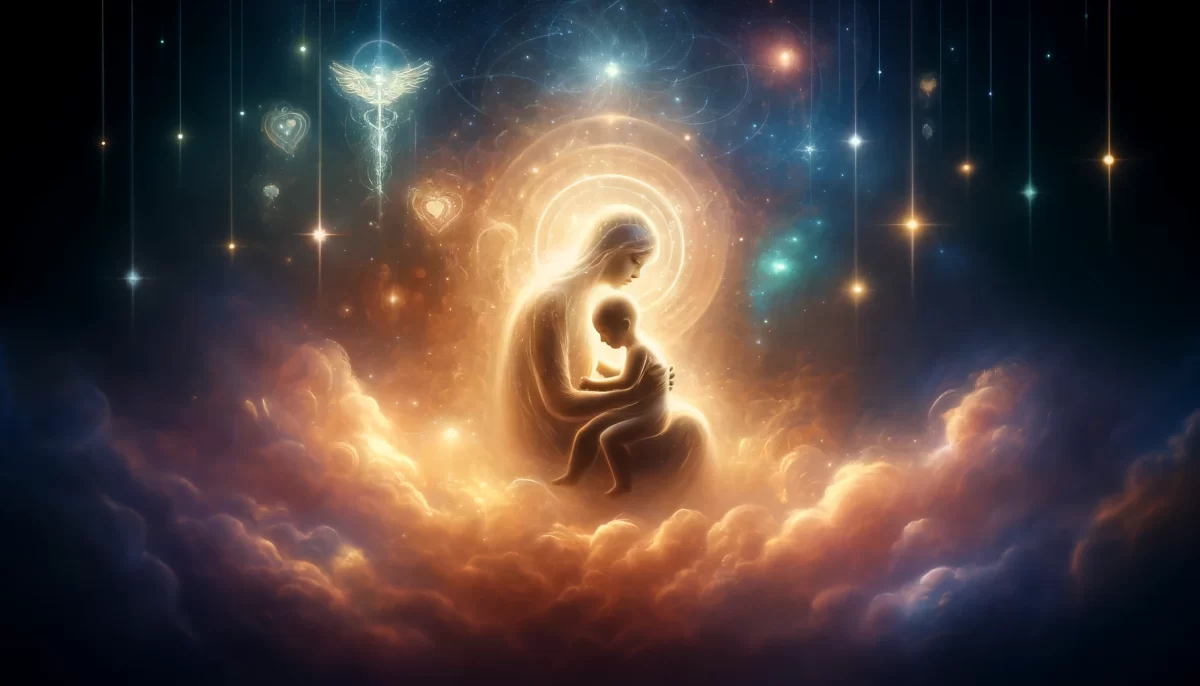
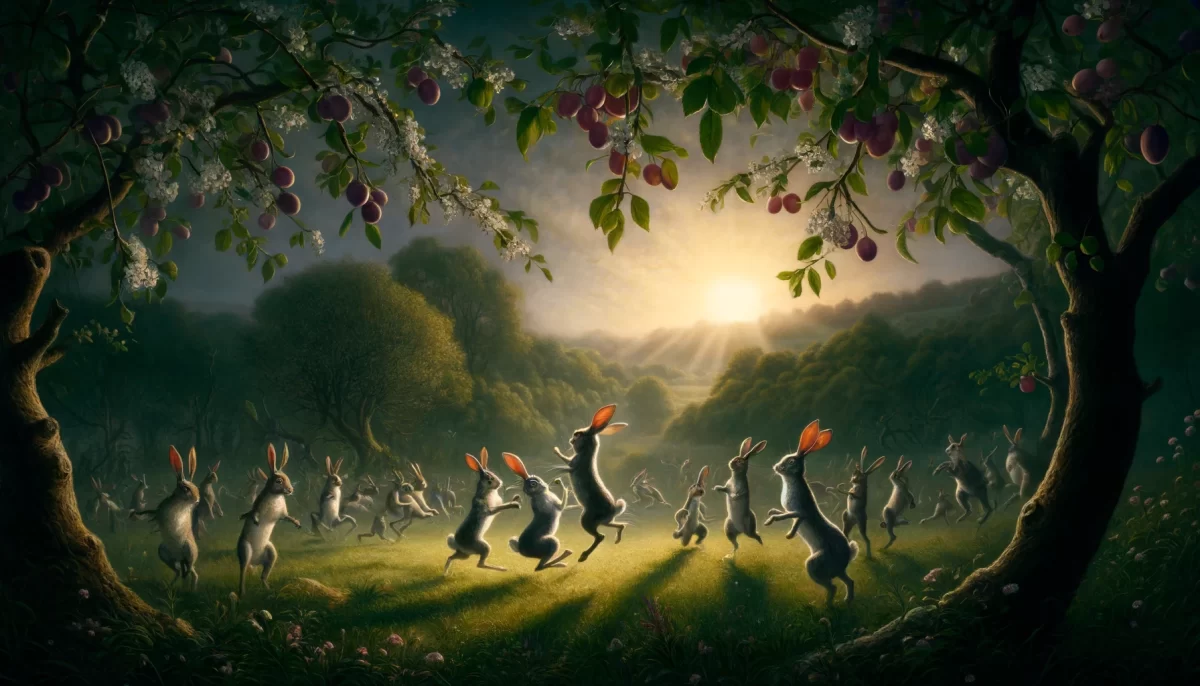
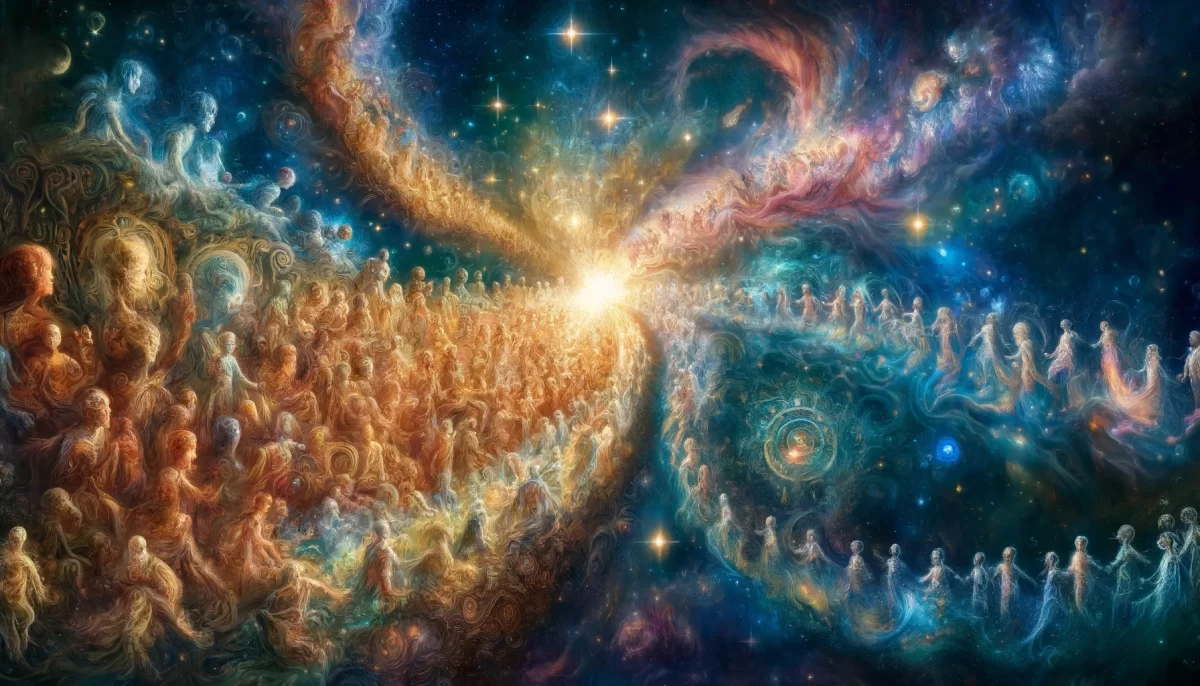
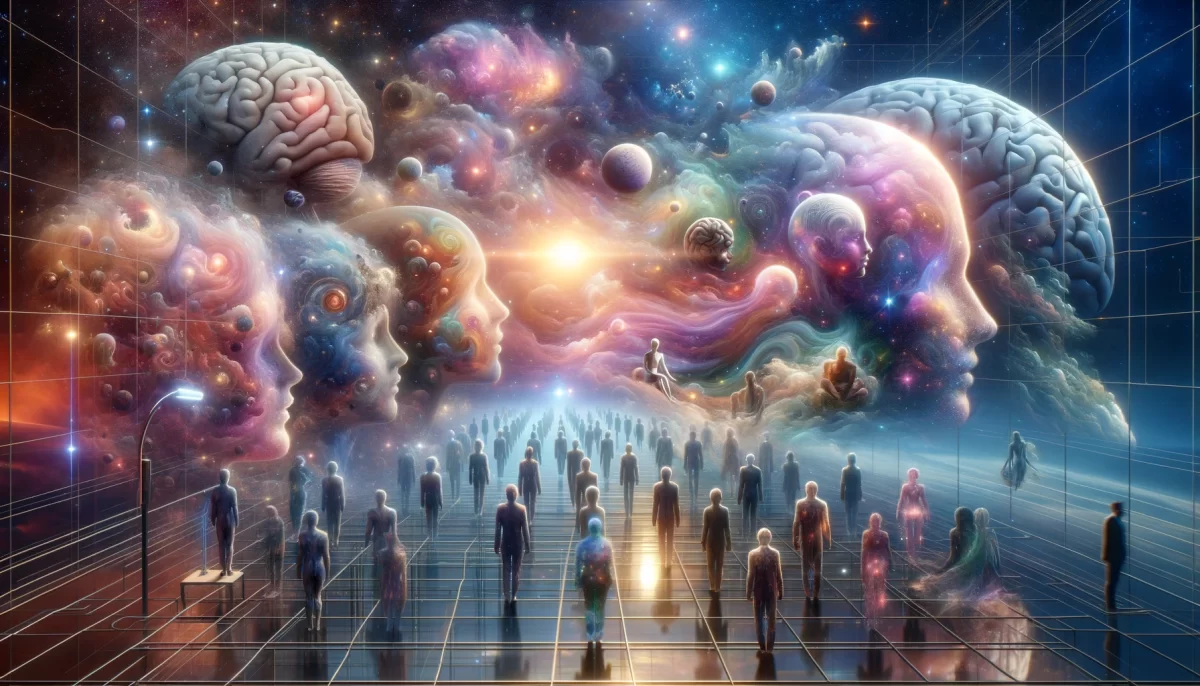
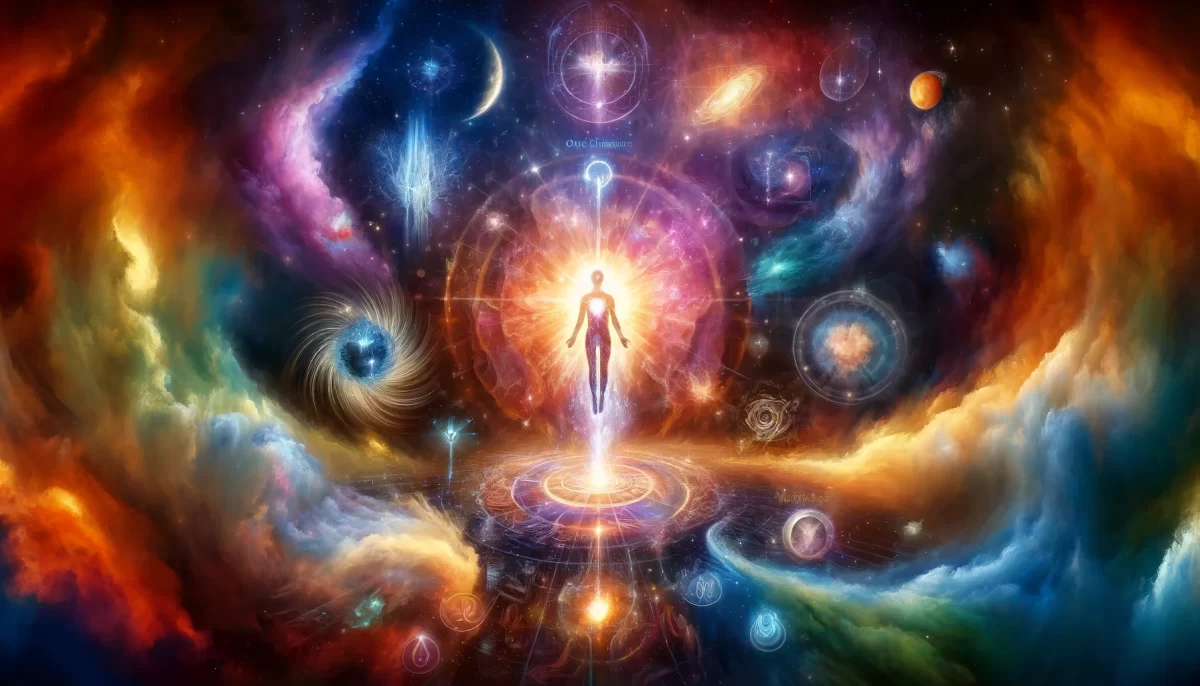
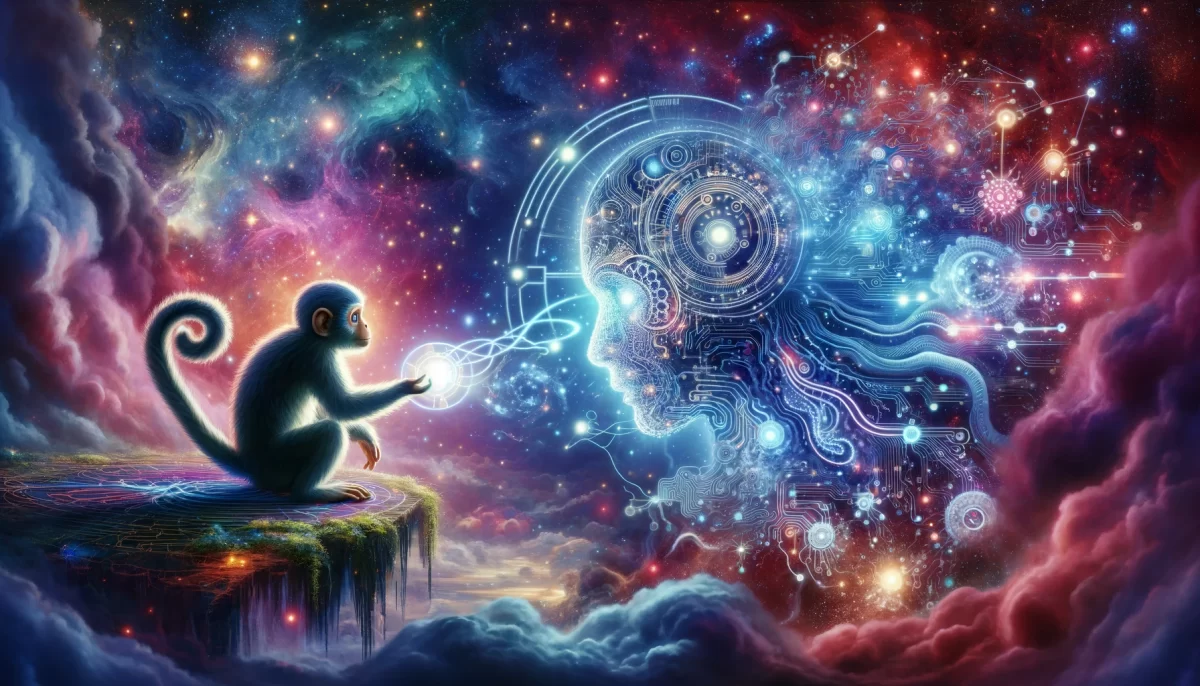

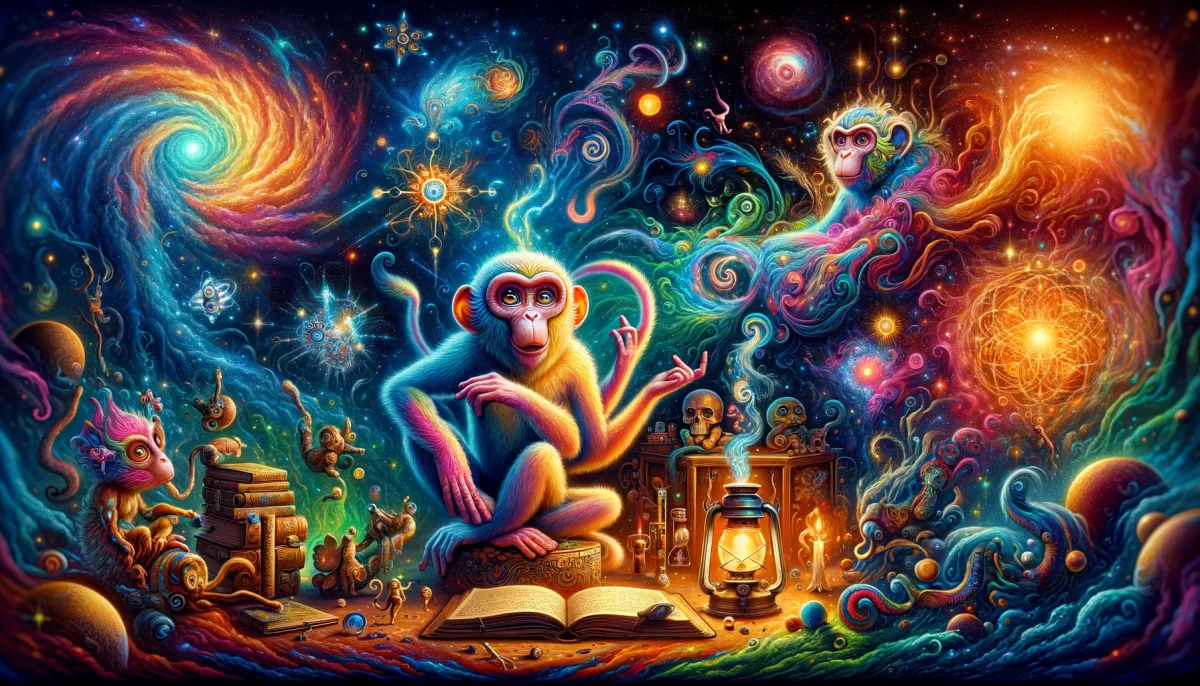
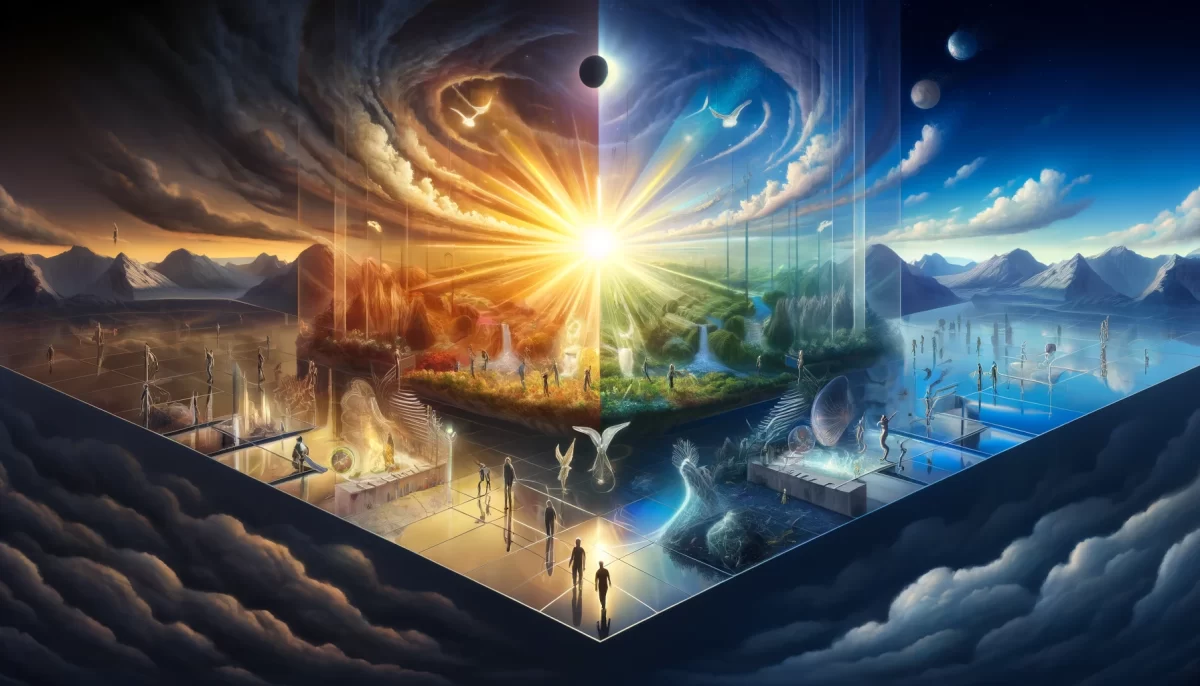

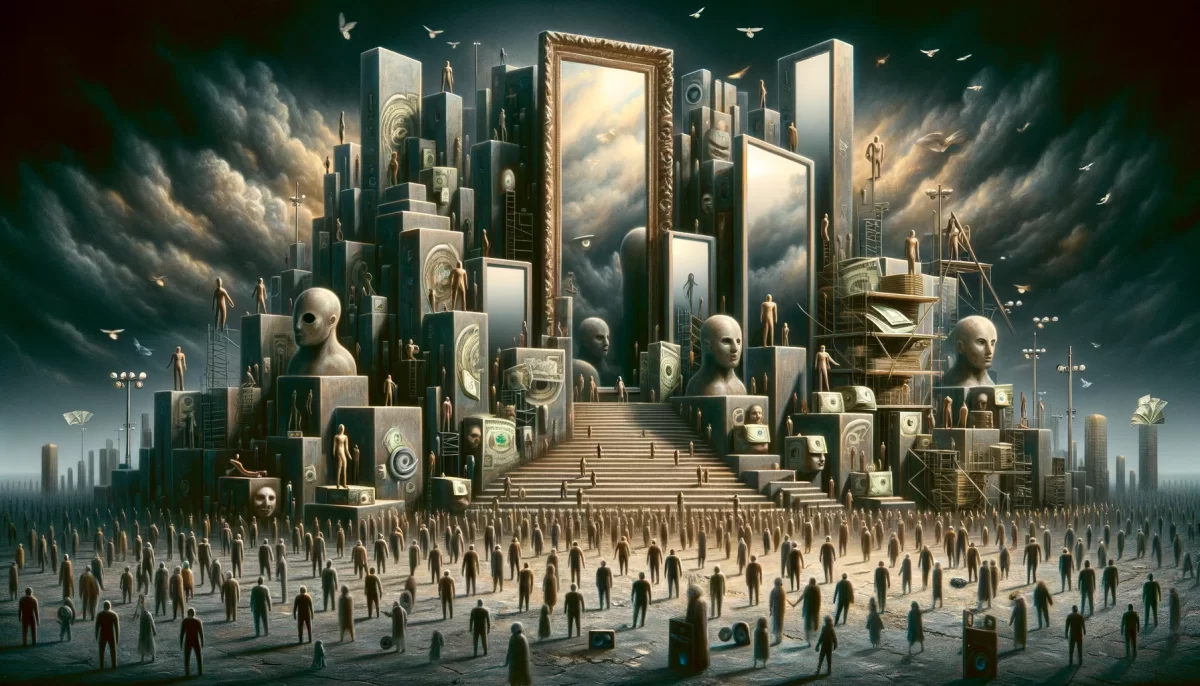

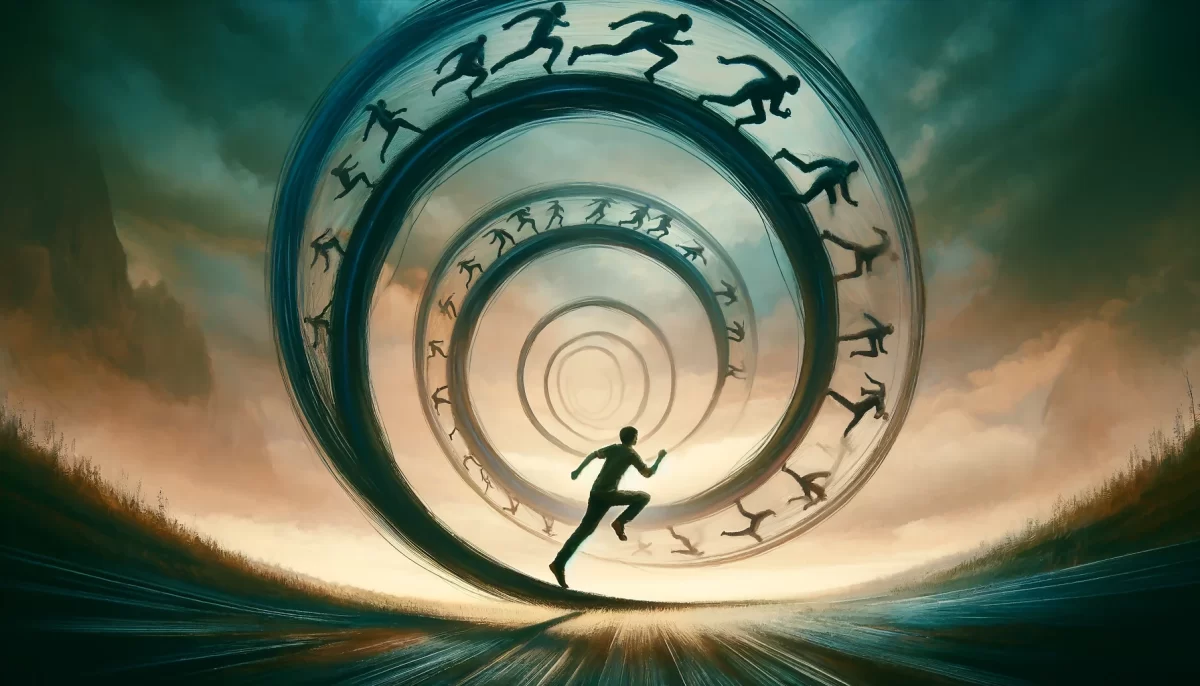
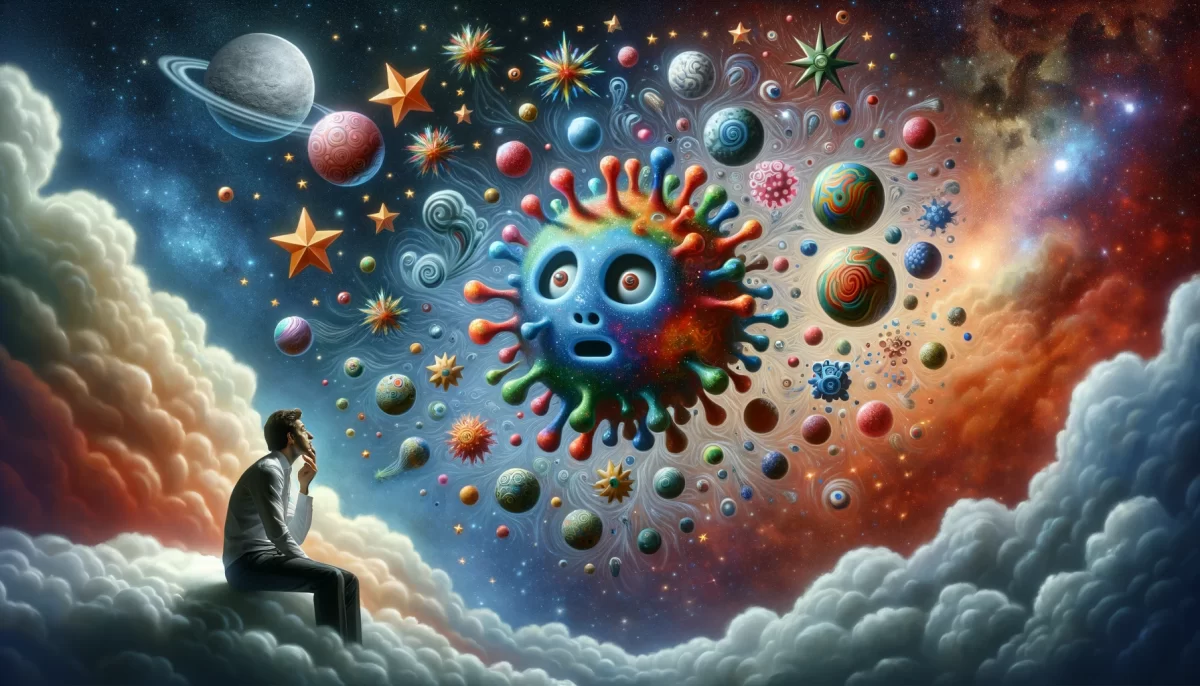



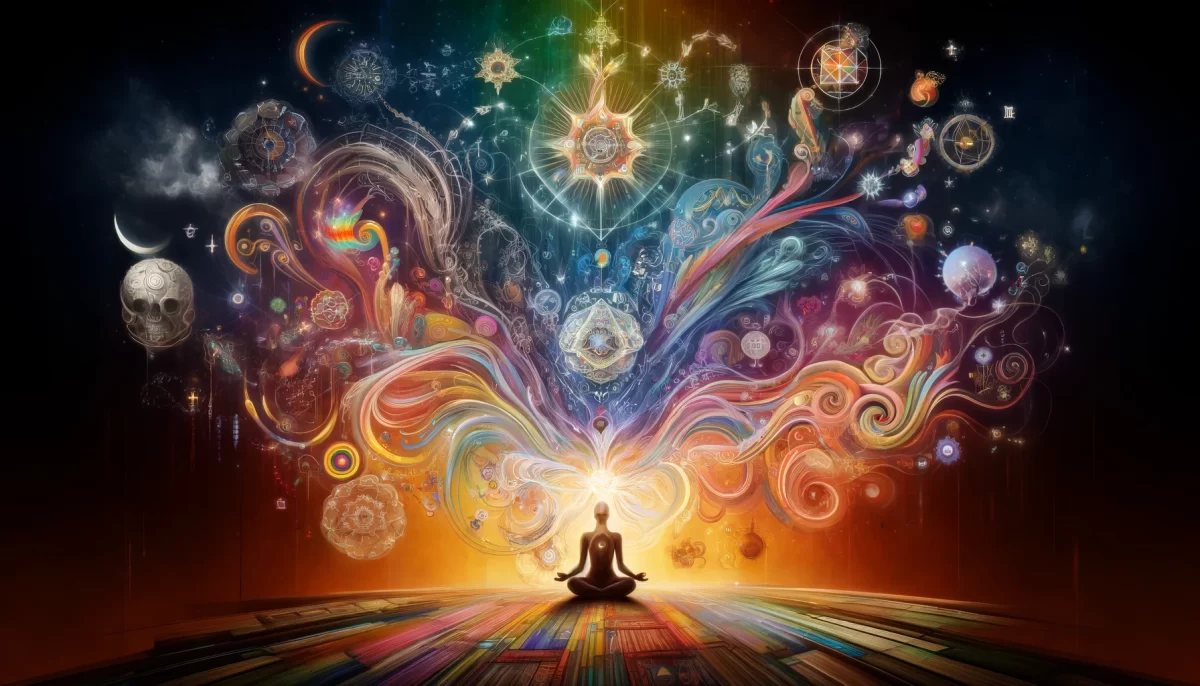
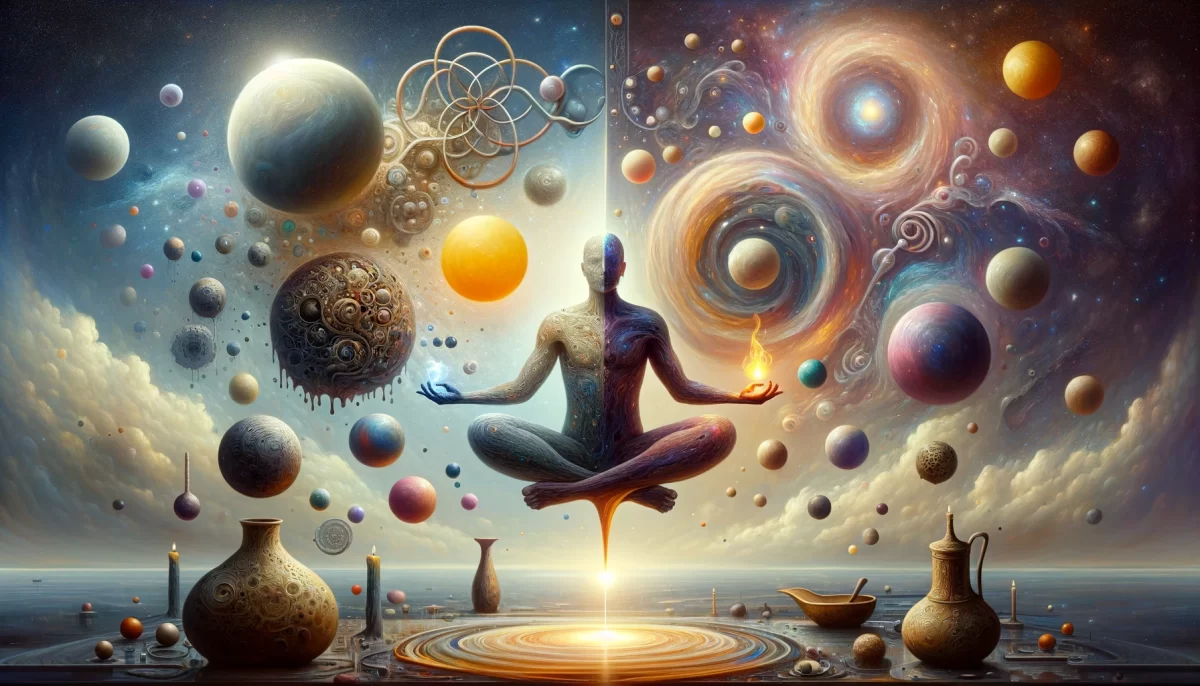

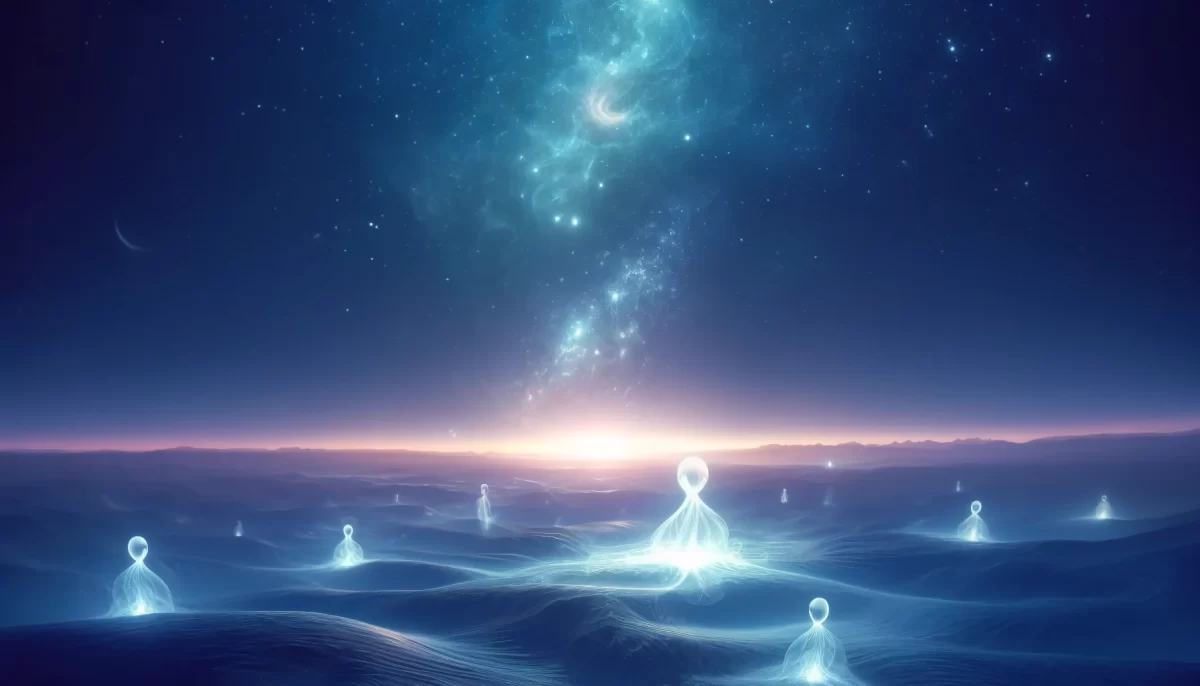
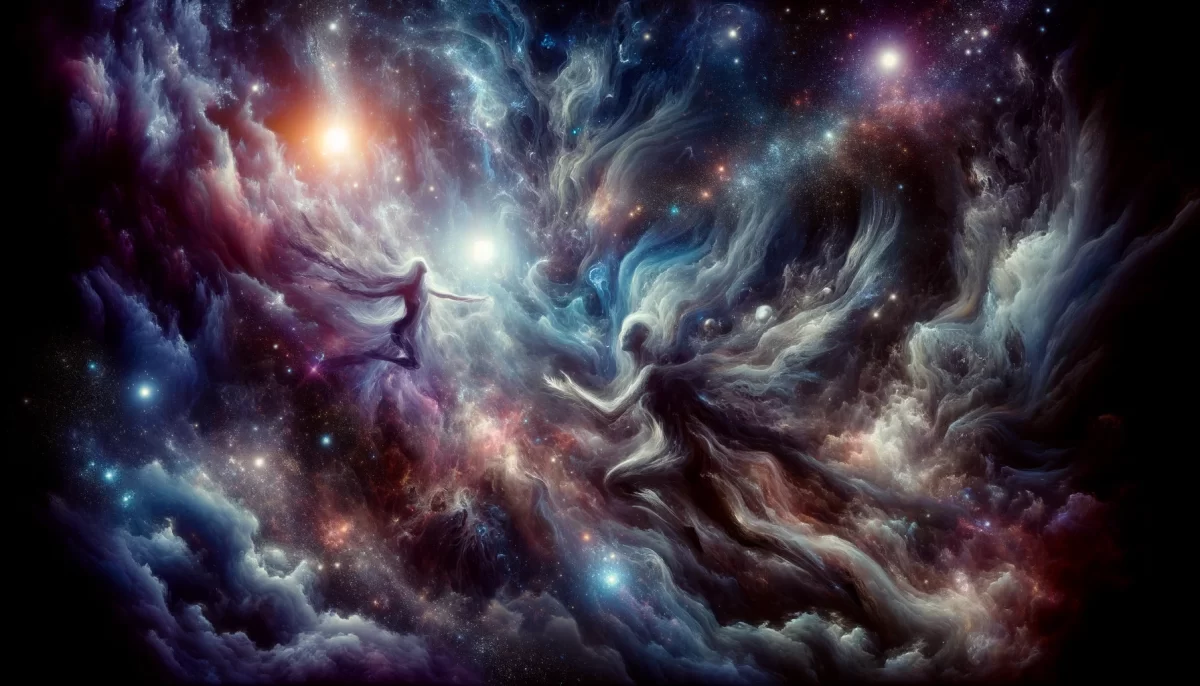

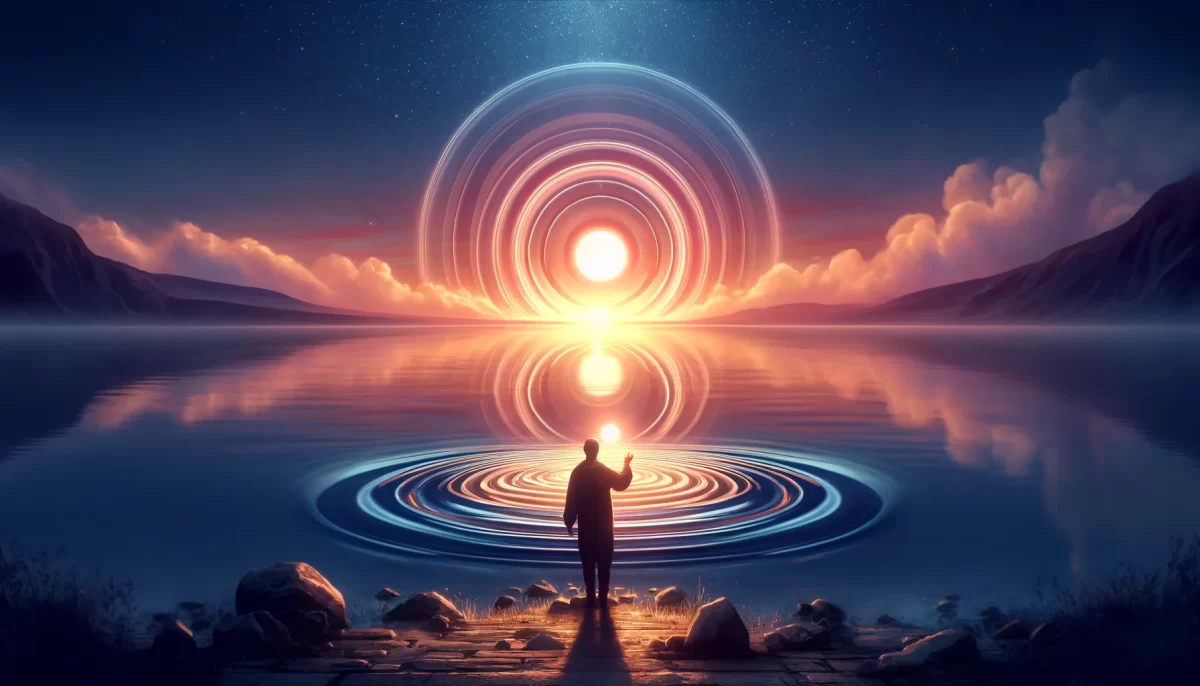
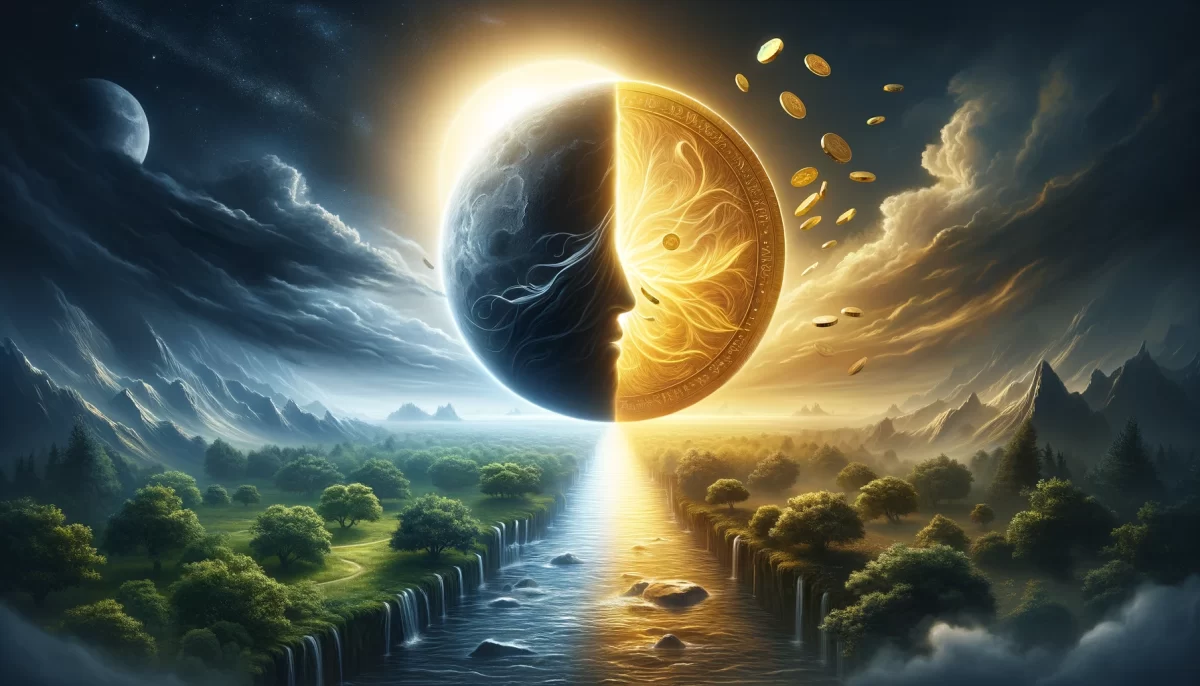
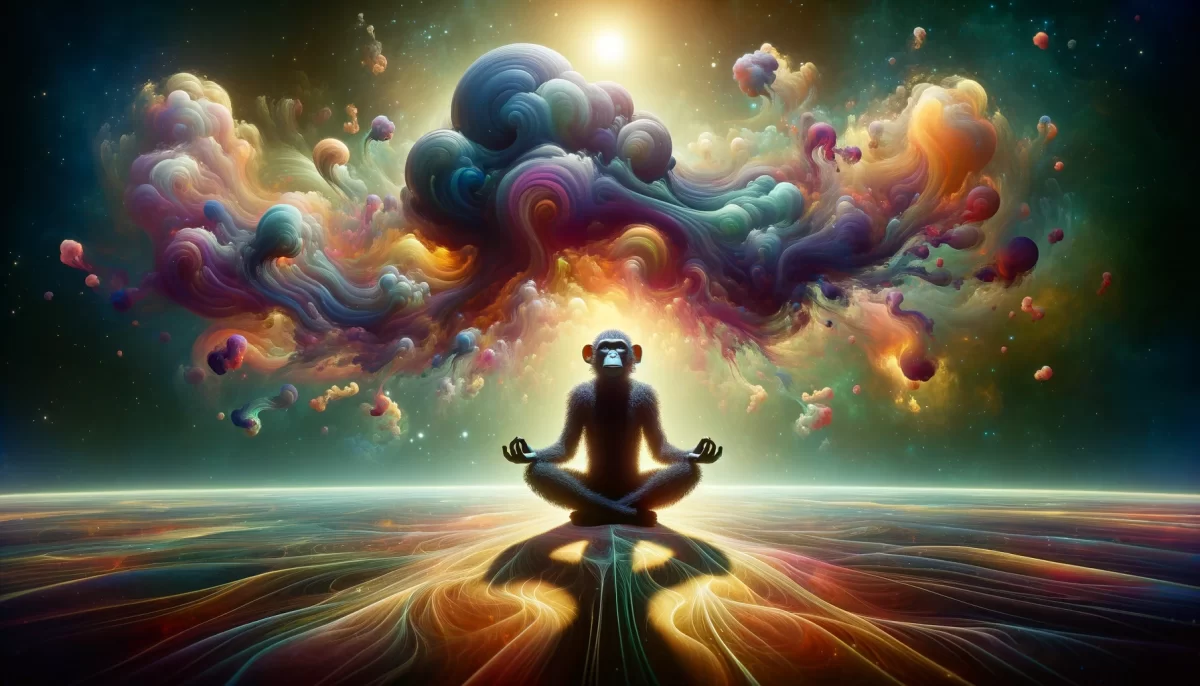
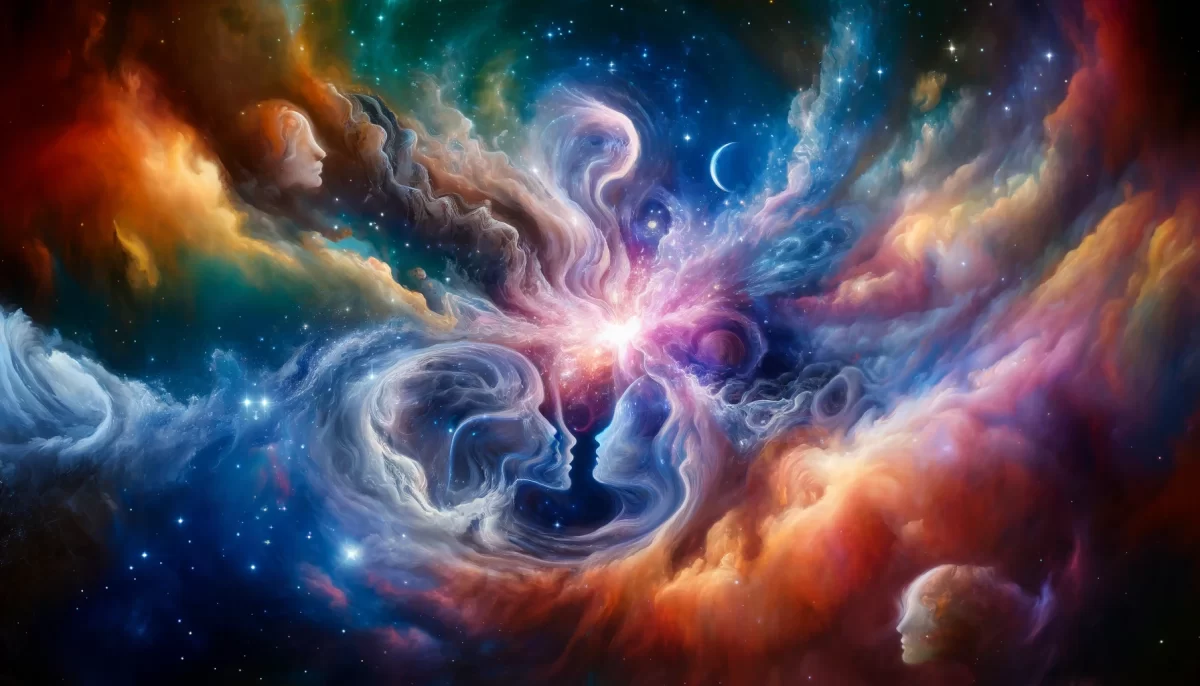
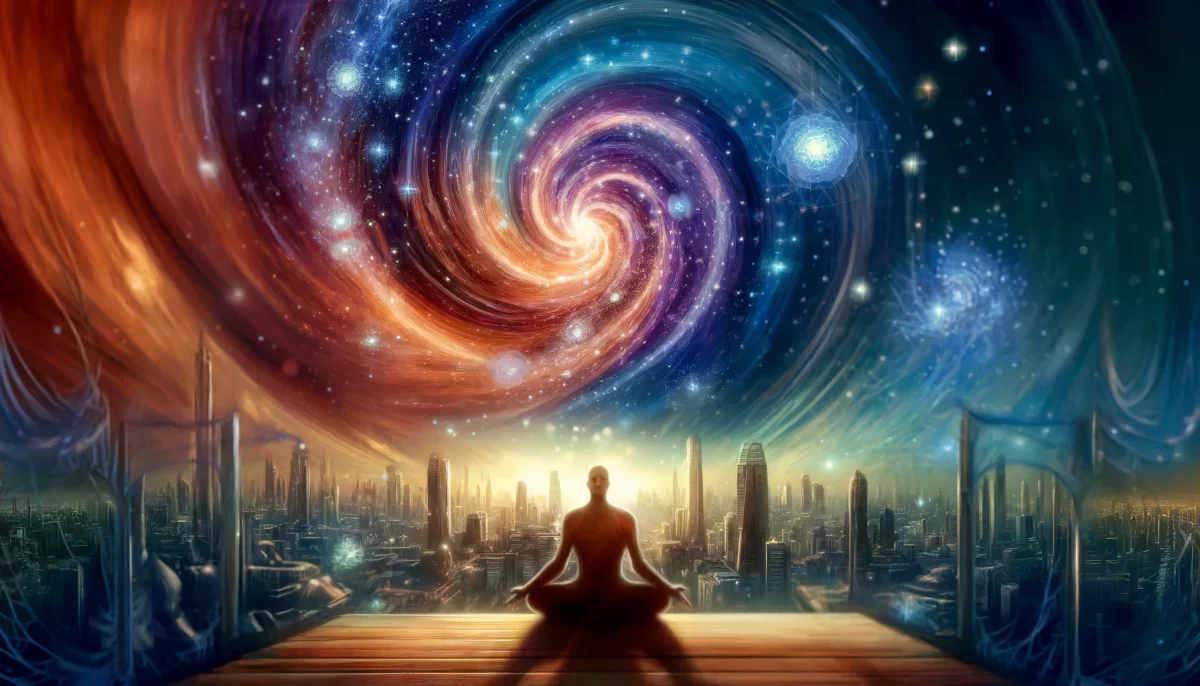
Leave a Reply